About Young Carers and Young Adult Carers

Children who are responsible for taking care of their families are young carers
Young carers are children who provide care to their families (such as household chores, nursing, taking care of children, language interpretation, emotional support, etc.) because they have a familymember who needs care. There are various kinds of families that require care, for example because they are young, or old, because they’re sick or disabled, or because Japanese is not their first language. In addition, the care that children provide does not just refer to so-called physical nursing. It also indicates household chores, taking care of siblings, and all other kinds of care.

Who are young adult carers?
Young carers are considered to be those who are 18 years of age or younger. However, there are also those who care for their family as young adults, at 18 years of age or older (in their 20s and 30s). In recent years, such people have been called “young adult carers.” Even though they are young adults, that does not mean they have no life issues when taking care of their families. In particular, taking care of their families during important periods, such as moving on to school, finding employment, and getting married, can have a big impact on their lives.

-
Companions for elderly family
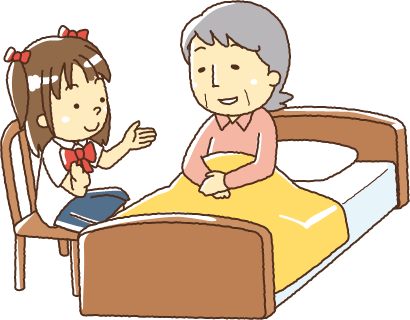
-
Everyday nursing and assistance
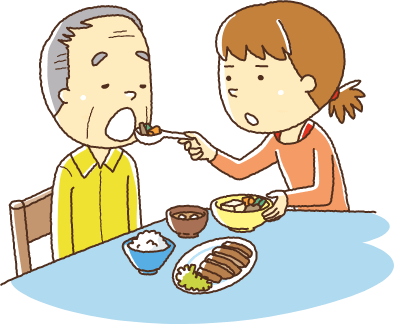
-
Providing assistance for going outside
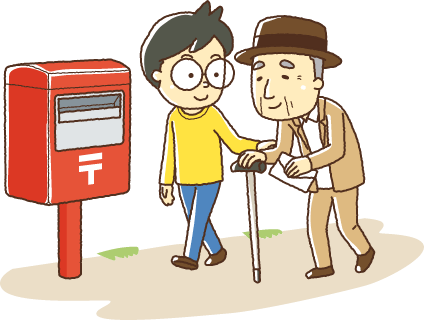
-
Supporting mentally unstable parents, and listening to their complaints
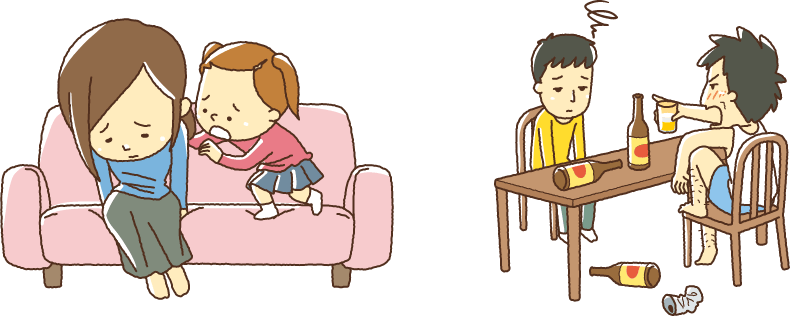
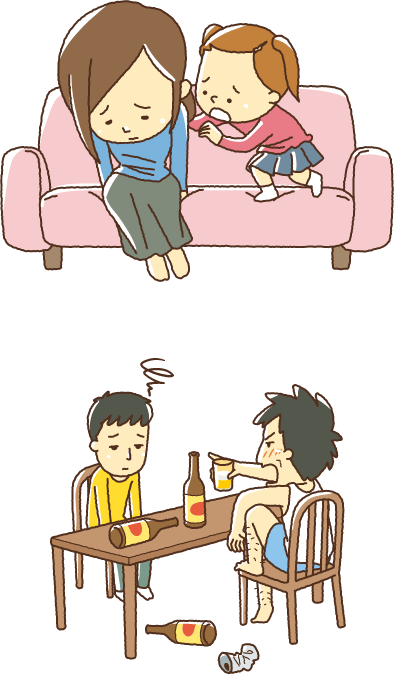
-
Accompanying them to the hospital
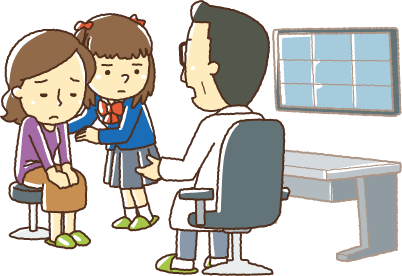
-
Doing household chores
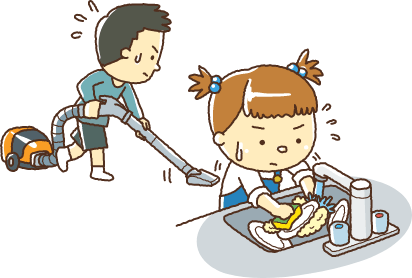
-
Taking care of their younger siblings
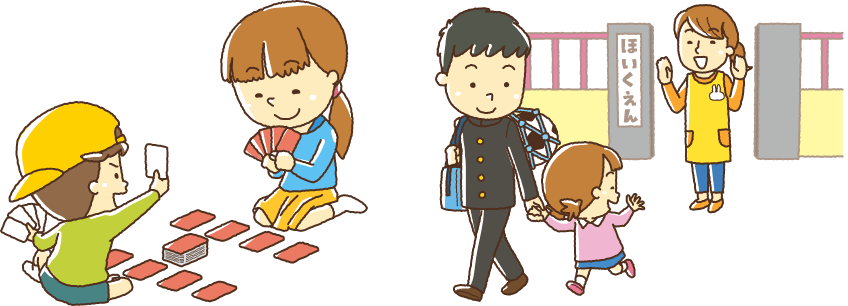
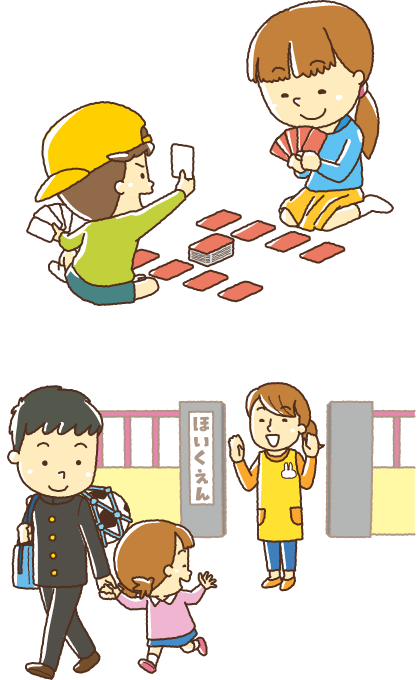
-
Watching over and taking care of siblings who are disabled or sick
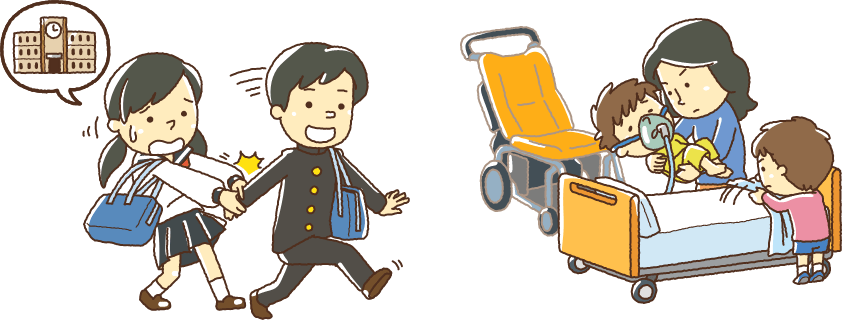
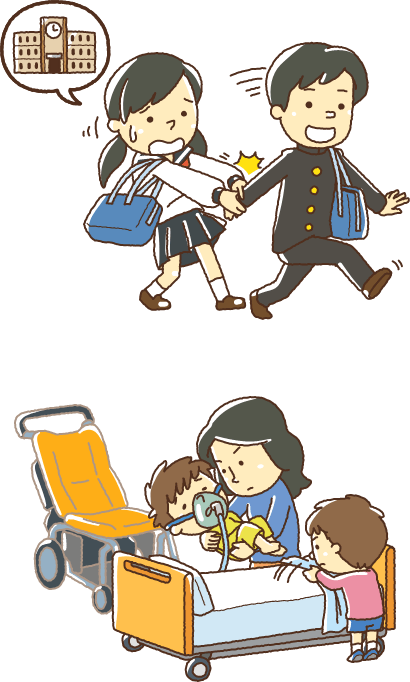
-
Interpreting for parents
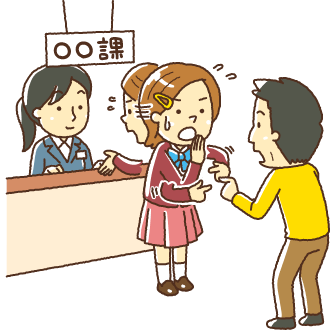
Knowing is an important first stepCurrent State of Young Carers and Young Adult Carers
The government conducted two nationwide surveys – one in 2020 aimed at middle school and high school students, and another in 2021 aimed at elementary school and college students.
The results showed that there were young carers and young adult carers in all age groups, and that it was possible that in general, every group of 17 to 20 of these people had 1 young carer or young adult carer..
That means that every class has around 1 to 2 young carers or young adult carers.
Ratio of Young Carers
-

Elementary School 6th Year Students
6.5%
-

Middle School 2nd Year Students
5.7%
-

High School 2nd Year Students
4.1%
-

College 3rd Year Students
6.2%
Problems that Young Carers and Young Adult Carers Have
You may think that children and young adults taking care of their families is a thing of the past.
However, everyday their burden of taking care of their families appears in various ways.
-

They’re late to class and other engagements
They can’t study at homeLateness, absences, forgetting things, sleeping in class, bad grades, all of these have an impact on their life at school.
Many of these children are misunderstood as bad students, as even if they are warned by teachers, they can’t easily talk about their situations. -

It damages their mental and physical health.
This manifests in various ways, such as unstable moods, eating disorders, and poor health for no clear reason, but these health issues are indicated in the national survey results. Many of these students deal with these issues even after they no longer have to care for their families.
-

They have a hard time building and maintaining friendships
These children have worries regarding friendships, such as not having chances to talk with their friends, having to turn down invitations from friends because they have to hurry home, and not being able to build deep friendships because they don’t go to school in the first place. Many of them are isolated because of this.
Value and Pride of Young Carers and Young Adult CarersPride
Young carers and young adult carers all have various hardships and worries. However, they also have value and pride.
That value and pride lies in their having learned various things through their bonds with their families, their deep love, and experience caregiving – such as household chores and child raising, nursing skills, a mindset that is considerate to other people, and an understanding of disability and sickness.
All of these things show the value and pride of young carers and young adult carers.
Society needs to understand not only the hardships and worries of young carers and young adult carers, but also the value and pride that they have.

First, they need a place where they can feel safe with friends with whom they can share a mutual understanding
“It felt like walking in the darkness all by myself”
“I enjoy taking care of my family, but the most difficult thing was having no one to talk to”
“I don’t want anyone to save me. I just want them to understand”
We often hear thoughts like this from young carers and young adult carers.
They have repeated experiences of talking to the people around them but not being understood. Even though many of them have worries and feelings of depression, they cannot discuss these problems with anyone.
First, young carers and young adult carers need to meet people in similar positions, and people who can understand them, in a place where they can feel at ease discussing themselves and their families.
All support for young carers and young adult carers begins from that first step.




